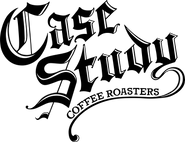Written by Dylan McClain
This year I finally took the leap into barista competitions by taking part in the Regional Qualifying Event in Kansas City.
A lot of people have asked me what it was like. It’s hard to describe. If you’ve competed before, you know--making coffee on stage is different. When you know that a team of professionals is evaluating your every move and every word, things that you do every day suddenly become heavy and difficult. Stage nerves are real. It’s harder to talk, harder to smile, harder to remember what you were supposed to do and say. It’s an ocean of details, and you are trying to look graceful as you surf on massive waves of adrenaline. The whole experience is altered, disembodied, unreal. I remember being about a minute into my routine and thinking to myself, gosh, I’m glad that there are words coming out of my mouth right now because I have no idea what's happening.
What I can say definitively about my first time competing was that it made me better. It’s still making me better. There’s no way to replicate what competition teaches you. As others have pointed out, competition forces you to raise your game. But more than that, it’s humbling. Humbling because it keeps introducing you to your own limitations. Humbling because it reminds you just how big the world of coffee is. I chose to work with a coffee I know and care about—the Paguaga’s Pacamara from Los Congos, in Nicaragua. It’s a coffee that has pushed me to new heights as a barista every time I’ve worked with it. And I used the remarkable story of its producer, Don Rene Paguaga, as an illustration of the difficult business of making a living from coffee. And that simple task--putting together the story of one coffee and sharing it with an audience--proved to be very humbling.
You can watch my performance here, if you choose the ‘Day 2’ video and start at the 4:18:50 mark.
For a few days after I competed I didn’t want to watch it. I was ready for a break from the whole thing, for one. On top of that I was afraid of how I might look. Confronting fears like that—fears about how you might look and where you might place—is the most crucial work you do when you chose to compete. And I will say that while it’s a weird experience to watch myself work, I feel proud that despite everything I kept it together. I made plenty of rookie mistakes, did things that make me cringe when I watch it back, but I kept it together and delivered on my preparation. More than anything I wish I had smiled more during my performance. That’s one goal for next year.


Leave a comment